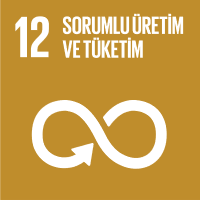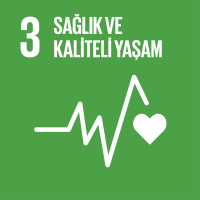Sustainable Spatial Planning of Tourism Destinations
The aim of the “Sustainable Spatial Planning of Tourism Destinations (SPOT)” project is to develop an innovative teaching method of sustainable tourism planning in a master programme and implement the method at five educational organisations involved in the project by the end of the project. This goal is influenced by the wider context of development of the European idea of innovative, sustainable, and inclusive tourism planning. Thus, the following specific objectives should be defined:- Understanding main trends and challenges of tourism in Europe this objective will result in a comparison of different contexts of tourism development in Europe (literature studies)- Facing the challenges of tourism planning through learning by doing on the spot as the result of this objective solutions for problems and challenges of tourism planning diagnosed in particular locations will be delivered (study visits)- Disseminating results of joint initiatives for development of tourism planning and its teaching methods thisobjective will result in the scientific, application, and educational contributions to tourism planning development (seminars and conferences)- Exchange of European best practices in the field of tourism planning as the result of this objective a scientific publication (European handbook of tourism planning) and educational manual (Manual for the course on sustainable spatial planning of tourism destinations) will be prepared both outputs will be included in the educational package offered to teachers and students participating in the sustainable tourism planning course the handbook will disseminate teaching content, while the manual will describe innovative teaching method developed during the SPOT project.The SPOT project will be implemented by the consortium of educational and scientific institutions co-operating on a regular basis, representing various research, educational, cultural and geographical contexts. The final selection of project partners resulted from the interdisciplinary nature of education and research in the field of tourism planning and the diversity of tourist planning challenges and problems diagnosed in different locations. Tourism geography and spatial economy are the educational and research fields of the leading project institution – University of Lodz. Tourism economics and tourism management are the fields of contribution of Inland Norway University of Applied Sciences. Mersin University’xxs input to the project is associated with tourism sciences and city planning. Tourism sciences is also the main axis of the contribution from the Polytechnic of Leiria. Architecture, territorial, urban and environmental planning, historic cities, and heritage management are the main scientific and educational interests of Politecnico di Torino. Finally, research projects carried out by Institute of Geography and Spatial Organisation of the Polish Academy of Science are focused on geography and spatial economy. Moreover, various geographical contexts represented by project partners refer to different ways of social and economic development, and different cultures: Italian, Norwegian, Polish, Portuguese, and Turkish.
01.11.2019 – 31.12.2022 TOLGA LEVENT



HYBRID TEACHING IN PARTICIPATORY URBAN PLANNING
In its simplest terms, a participatory approach in spatial planning is a decision-making process in which everyone who has a stake in the proposed intervention process has a voice, either in person or by representation i.e. target population, community officials, governmental representatives, property owners, interested citizens, and/or people from involved agencies and other institutions/organizations. Within a participatory process, everyone's contribution should be welcomed and respected, and the process shouldn't be dominated by any individual or group, or by a single point of view. A true participatory approach is one in which everyone's opinion is considered. However, this does not mean that everyone’s demands and wishes would be realized or none would challenge other opinions or assumptions. In fact, participatory process is a process of consensus building in which a common ground accepted by all or majority is formulated. Urban planning is a challenging process taking decisions on spatial, social and economic dimensions of settlements where diverse and various actors and stakeholders are involved during the process and/or affected at the end. There are different methods and tools to create a participatory environment in urban planning – some are conventional such as public hearings; some are more innovative including e-participation tools. Learning different methods and tools of participatory processes, as well as the roles and motivation of actors and stakeholders in urban planning would be beneficial for city planning students to be more equipped after their graduation. Yet, learning participatory processes by passive learning methods based on theoretical discussions would result in limited learning outcome, as participatory processes are dynamic processes which could be learnt in depth by active learning methods based on applications and simulations of participatory processes. Thus, it is considered that both theory and application should be covered together in such a course for a complete learning outcome. Besides, learning only conventional methods and tools would not be sufficient for a complete learning outcome, as methods and tools in participatory processes are evolving and changing in parallel to changes in IT technologies, communication technologies, and availability and variety of digital platforms. The general aim of the project is to create a virtual learning environment for city planning students in which they can learn both the theoretical context of the participatory processes in urban development and its practical implementation, incl. exploring various examples from different countries, and experiencing participatory processes in urban development by focusing on a case study area. Aiming this, the project consists of two consecutive courses handling both theoretical and practical aspects of participatory processes. The Fall/Winter Semester 2021/22 course will focus on learning theoretical context and exploring examples from Turkey, Germany and other countries. The Spring/Summer Semester 2021/22 course will focus on the application of the theoretical knowledge acquired in Fall/Winter Semester on a selected case study area. The consecutive courses are designed and will be conducted by 1 professor from University of Kassel, G.-Prof. Dr.-Ing. Umut Kienast-Duyar, and 2 professors from Mersin University, Assoc. Prof. Dr. Tolga Levent and Assist. Prof. Dr. Yasemin Sarıkaya Levent. The courses are offered as compulsory elective courses for city planning students in graduate level in the Department of Sustainable Cities and Communities at University of Kassel and in the 4th year bachelor level in the Department of City and Regional Planning at Mersin University.
01.10.2021 – 30.09.2022 TOLGA LEVENT, YASEMİN SARIKAYA LEVENT


Aya Tekla Çevre Düzenleme Projesi
Kentsel Tasarım Projesi
–
Mut Cumhuriyet Meydanı ve Çevresi Kentsel Tasarım Projesi
Kentsel Tasarım Projesi
–
Akkale Arkeolojik Sit Alanı ve Çevresi Kullanıcı Koruma Bilinci ve Koruma Süreçlerine Katılımı
Bilimsel Araştırma Projesi
MERSİN ÜNİVERSİTESİ 04.10.2012 – YASEMİN SARIKAYA LEVENT, TOLGA LEVENT
Sağlıklı Kent Mezitli
31.05.2017 tarihinde Mezitli Belediyesi ile Mersin Üniversitesi (Me.Ü) Mimarlık Fakültesi arasında imzalanan döner sermaye projesi kapsamında Mezitli İlçesi için kent sağlık profili ve kent sağlık gelişim planı hazırlamak üzere görevlendirilen Me.Ü Mimarlık Fakültesinden 5 öğretim elemanı, Me.Ü Tıp Fakültesinden bir öğretim elemanı ve Me.Ü Bölgesel İzleme, Araştırma, Uygulama Merkezinden (BİAMER) bir öğretim elemanından oluşan proje ekibi 31 Mayıs 2017 – 29 Aralık 2017 tarihleri arasında sözleşme kapsamında taahhüt edilen Kent Sağlık Profili ve Kent Sağlık Gelişim Planı hazırlanması çalışmalarını yürütülmüştür.
31.05.2017 – 29.12.2017 ALİ CENAP YOLOĞLU, YASEMİN SARIKAYA LEVENT, SERVET KARACA, AHMET ÖNER KURT, SERKAN GÖKALP, TOLGA LEVENT, SİNAN BURAT


Hizmetler Coğrafyasından Kentsel Planlama Kararlarına Mezitli Merkez Alanı Üzerinden Bir Değerlendirme
Bilimsel Araştırma Projesi
MERSİN ÜNİVERSİTESİ 27.07.2010 – 27.05.2011 TOLGA LEVENT, YASEMİN SARIKAYA LEVENT
II. Meşrutiyetten İşgal Dönemine İstanbul’da Toplumsal, Ekonomik ve Mekansal Dönüşüm Doğu Yıllıkları üzerine İlişkisel Çözümlemeler TÜBİTAK Projesi 102K028 (SBB 8006)
II. Meşrutiyet’ten İşgal Dönemine İstanbul ‘da Toplumsal Ekonomik ve Mekansal Dönüşüm: Doğu Yıllıkları Üzerinde İlişkisel Çözümlemeler başlıklı SBB 8006 kodlu TÜBİTAK Projesi’nin sözleşmesi Şubat 2002‘de imzalanmıştır. Çalışma 1910 -1922 döneminde yaşanan ve Osmanlı İmparatorluğu’nun yıkılmasıyla sonuçlanan sürecin İstanbul‘un toplumsal ve ekonomik coğrafyası üzerindeki etkilerini açığa çıkarmayı amaçlamıştır. Çalışmanın önemli katkılarından birisi, adı geçen dönüşümün ilişkisel çözümleme yöntemleri kullanılarak kartografik olarak ortaya koyulmasıdır.
28.02.2002 – 31.12.2004 ŞENYAPILI TANSI, TOLGA LEVENT, AKTUNA ZEYNEP, DENİZ ALTAY KAYA, HİMMET MURAT GÜVENÇ